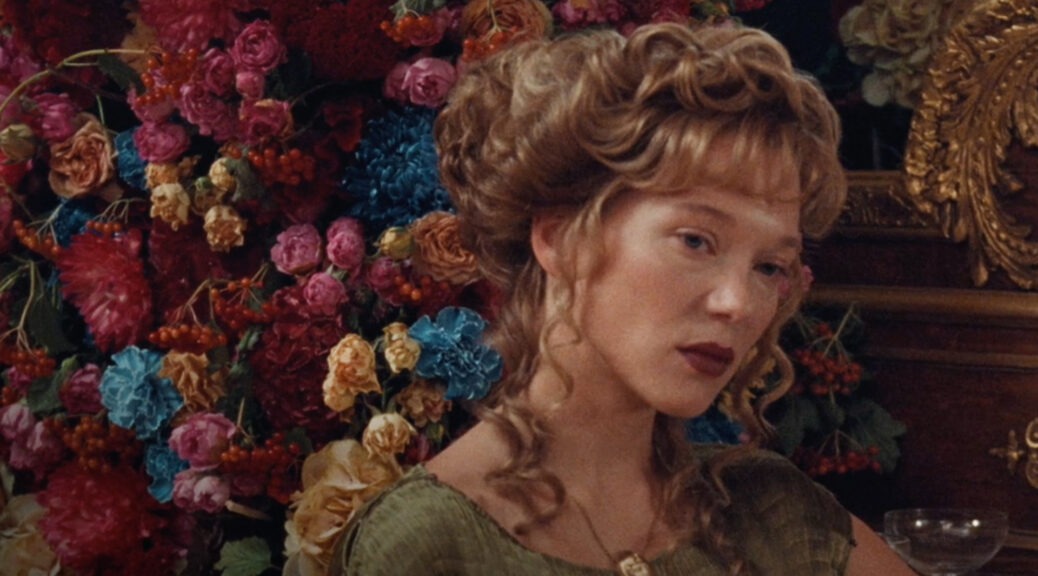The Beast
by Hope Madden
“Fulfillment lies in the lack of passion.”
Filmmaker Bertrand Bonello reconsiders the Henry James novella The Beast in the Jungle, blending the fear of intimacy with a larger scale societal pressure to minimize our unruly natures.
Bonello, writing with Guillaume Bréaud and Benjamin Charbit, crosses three timelines to expand and deepen his vision: Paris 1910 during the Great Flood; LA 2014, when a 4.4 earthquake struck as the incel phenomenon was born; and back to Paris in 2044, long after AI has become master to humanity’s subservient species.
These are the timelines in which Gabrielle (Léa Seydoux) struggles with “the beast” — an overwhelming sense of impending disaster. Memories of Gabrielle’s previous lives are ignited by the 2044 cleansing process meant to minimize human emotion, making people more reliable workers.
In each storyline, Gabrielle dances around a possible relationship with Louis (George MacKay). Pressure to conform and the idea that emotional safety is key to happiness are obstacles to their passion. But it is Gabrielle’s obsession with impending doom that forever keeps the two from connecting.
Bonello revives James’s age-old terror of intimacy with the modern terror of AI, and does it with such nuanced humanity that even the occasional spot of stilted dialog can be forgiven.
Seydoux, forever a marvel of raw human emotion, perfectly animates the fight against sanding down the rough edges of humanity. But Bonello throws a wild curve ball with his 2014 plot, tangling psychotic entitlement within the story’s misunderstood concept of intimacy.
The shift in focus could pull you from the hypnotic romance of the other timelines were it not for the exceptional work of his cast. MacKay treads a narrow path of gentlemanly interest, effortlessly illustrating the heartbreaking proximity between tenderness, apathy and contempt.
The Beast is a lush affair, gorgeous to look at and nimble in the way themes echo across eras. It’s also an elegant reminder that an unruly heart is nothing to silence.





